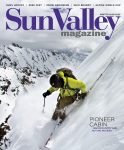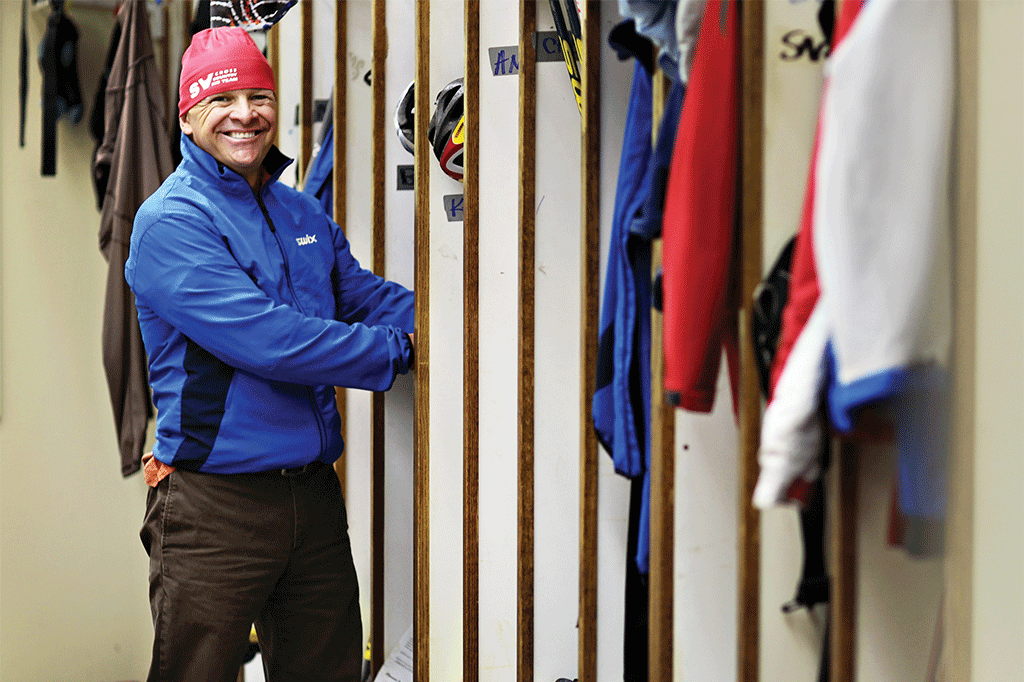As far as idyllic mountain communities go, few may have such varied winter terrain as the Wood River Valley, where miles of Nordic skiing trails let many local skiers find their stride and where, for over 30 years, long time resident Rick Kapala helped put Sun Valley on the map as a cross-country mecca.
Kapala began coaching cross-country in 1982 and, by 1987, joined the Sun Valley Ski Education Foundation (SVSEF) as cross-country program director. He trained hundreds of athletes, many of whom achieved national and international acclaim as Olympians, champions, and even coaches. Beyond his technical knowledge, Kapala’s commitment to a growth mindset and a love of individualized challenge helped SVSEF’s programs become what they are today.
A native of Sterling Heights, Michigan, Kapala found his calling in Nordic, while attending Michigan Technological University, and his journey as a ski coach began once he struck out for Anchorage, Alaska, in his mid-20s.
Several of the freshmen on Kapala’s first-year roster at West Anchorage High School would one day become some of cross-country’s most notable skiers. Among them were Nina Kemppel, who won a record 18 national championships and competed in four Olympics, and Chris Grover, who would become the U.S. Ski Team Nordic head coach.
How did he manage with such a skilled team early in his career? When blessed with a roster of gifted athletes, Kapala maintains the best thing a coach can do is let them work: “You have to let the talent express itself. . . you have to be smart enough as a coach to be prepared to provide guidance and direction, but you can’t ever squelch it.”
Years coaching in Anchorage provided enough experience to move to Idaho, where, with SVSEF, Kapala became one of many leaders spurring the Wood River Valley’s love affair with Nordic skiing. Today, his dedication to a consistent coaching philosophy impacts more than the cross-country program.
Kapala jokes that most coaches in his sport don’t go on to achieve riches and fame. “It’s really important to understand what informs your motivations,” he says. “I need to coach myself to be the best possible coach, just like I’m asking and coaching my athletes to be the best versions of themselves in that athletic space.”
Kelley Yeates, SVSEF’s cross-country assistant director and prep team head coach, worked alongside Kapala for 17 years and even skied competitively in his program from the late 90s until 2001. She attests that Kapala strived to learn more and carefully refine his process each season. “He’s a student of it,” she says. “He’s always wanted to be a better coach and find different ways to reach kids.” Kapala also inspires his colleagues when working with other coaches in his new capacity as director of sport development. Says Yeates, “We’ve done a lot over the years, but when we actually get to talk about instructing kids, mentoring kids, that’s when you just see him come alive.”
According to him, Kapala successfully taught his athletes to focus on their training process rather than mere race stats. “The vast majority of kids, you’re hoping that they engage in the sport in a way that challenges them. . . because those are the kind of traits and characteristics that will carry them to success elsewhere in their life.”
SVSEF Executive Director Scott McGrew, who worked with Kapala for 20 years, speaks of Kapala as an “icon” in the community and within ski education, saying that each athlete relates their training with Kapala as “the most transformative experience of their lives.”
Indeed, young skiers have flourished through SVSEF, and by challenging them to build self-motivation, intentional practice methods, and a growth mindset, Kapala has aimed to help kids succeed at any level.
“That we were able to take advantage of the opportunities in the community to engage more people with the sport in a healthy way, that’s the most important thing,” he says, adding with a smile, “That we won some ski races along the way is nice.”


